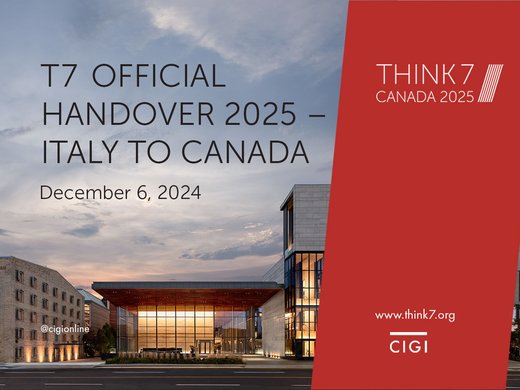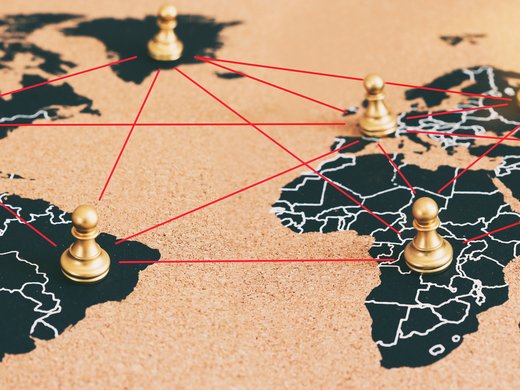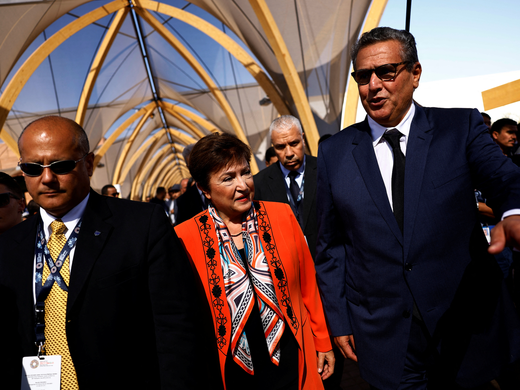Some who spend time thinking about global governance would merge the G20 and the IMFC, the slightly larger steering committee of the IMF.
On the weekend, this happened, if fleetingly, as finance ministers and central bankers from the two bodies met jointly to debate how to end the impasse over IMF reform. To me, it was the most interesting development at last week's annual meetings of the IMF, a gathering at which the US's changing role in the world hung over most every session.
Both the G20 and the IMFC expressed their "deep" disappointment in the US over the failure of its leaders to ratify a change in IMF governance and resources that was agreed five years ago — at the behest of the Obama administration.
Virtually every other country in the world has signed off on increasing the voting shares of some larger emerging market nations, doubling the IMF's capital to fight financial emergencies and introduce an elected board of directors. But the US wields an effective veto over major decisions at the fund and the White House and Congress have failed to find a way forward.
The US's allies in the G20 have expressed their frustration with the situation for a couple of years, but have been slow to apply real pressure. That could be changing.
Several dozen countries signed up to be founding members of China's Asian Infrastructure Investment Bank (AIIB), ignoring US objections. This has prompted some soul searching in Washington. The New York Times last week ran a front page story on the US's fading influence in global economic affairs. The issue has gone mainstream.
Agustin Carstens, the governor of the Bank of Mexico and the chairman of the IMFC, told a press conference Friday that US Treasury Secretary Jacob Lew "reassured" the group that US politicians would get it together and pass the 2010 reforms. It was an interesting choice of language, implying Lew had a rabbit to pull from his hat. But Carstens didn't elaborate on why he had confidence the US would act. From the outside, it is hard to see that anything has changed.
Lew has a window of about two months to avoid giving commentators another example of America's declining influence. The G20 and the IMFC directed the IMF's board of directors to choose a path if the US fails to ratify the 2010 reforms by the end of June. "Recognizing the importance of these reforms for the credibility, legitimacy, and effectiveness of the IMF, we reaffirm that their earliest implementation remains our highest priority," the IMFC said in a statement after its formal meeting on the weekend. "We call on the IMF executive board to pursue an interim solution that will meaningfully converge quota shares as soon as, and to the extent possible, to the levels agreed" in 2010, the statement said.
The G20 and the IMF have demonstrated their ability to lament in writing the intransigence of the US. But will they finally act? The rush to join the AIIB suggests their is a desire to move on with or without Washington. But coming to an agreement on how to do so will be difficult.
There isn't a lot of enthusiasm for "Plan B." Everyone agrees that any step taken without the US will be sub-optimal when put against what would be achieved by "Plan A."
And there is no agreement on how to follow through on the IMF's threat to move on quota reform without the US. Canada supports an ad hoc agreement that would increase the shares of countries that warrant larger stakes. Brazil and Russia want to break the 2010 package into pieces and move forward on the parts that don't require US support to pass. This seems unlikely. The doubling of IMF quota could proceed with 70 per cent of voting shares. But the capital increase is tied to the creation of an elected executive board, which requires an 85 per cent vote because it would rewrite the articles of agreement. The US administration can't change the terms of its participation in the IMF without Congress's approval.
The US would have to agree to "de-link" the 2010 reforms. Doing so would be tantamount to voluntarily giving up its veto because the US's share of quota would shrink below 15 percent if its contribution to the fund stood still while others gained.
No country would voluntarily give up such important influence, especially one that may feel its grip on global affairs already slipping.


